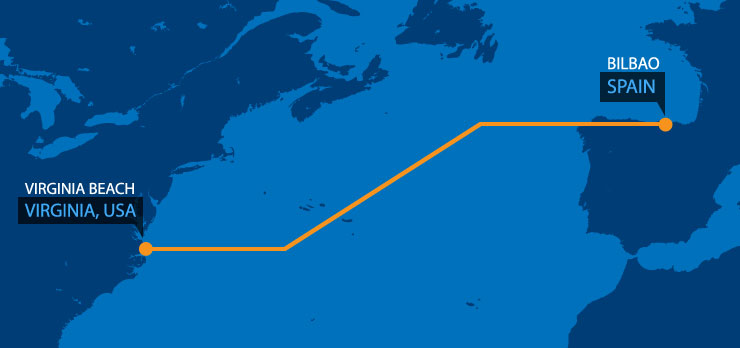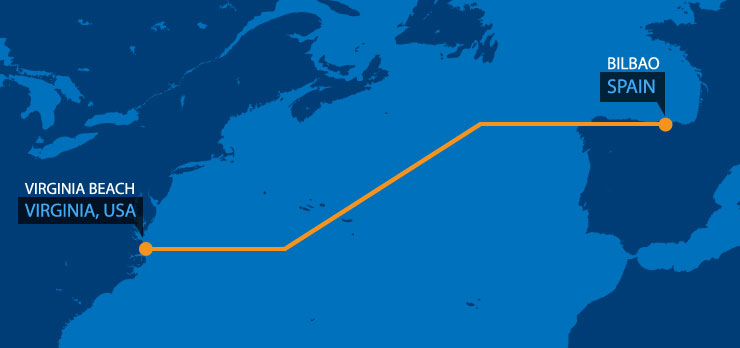Are You Ready To Ditch Cable?
Is it time to cut the cord and stop paying for cable TV?


Ever wonder how the internet connects the world together? At the core of the world's connectivity is a series of undersea fiber optic cables, linking continents together to help us communicate, share information and so on.
It's mind boggling to think about, and recently a company called Infinera announced that one particular cable, stretching from Virginia Beach in the US to Bilbao, Spain, had broken a record for how much data it could send through this cable in a second. (Before we go any further, it's important to know that there are nearly 400 cables like this stretching across the oceans around the globe.)
The cable, named MAREA, owned by Facebook and Microsoft, stretches an incredible 4,100 miles and weighs over 10 million pounds. It also sinks as low as 17,000 feet. The cable is made of eight pairs of optic fibers, each designed to carry 20 Tbps of data-- enough to simultaneously stream more than 4 million HD videos--for a combined "theoretical" total of 160 Tbps of traffic.
A recent experiment achieved record transfer speeds of 26.2 Tbps on the 4,000 mile transatlantic cable, representing a 20-percent improvement on the 20 Tbps each pair of the cable’s eight optic fibers was originally thought capable of, according to the team of researchers from Infinera that conducted the test. Also according to Infinera, the new approach was demonstrated on an existing cable, potentially allowing for capacity upgrades without spending hundreds of millions on laying new cables. And secondly, the speeds were demonstrated on a cable spanning such a long distance.
Point being, the more connected the world gets and the more we demand faster connections, the faster the network of cables that link us together will have to be. The developments on the MAREA cable are promising; however, experts caution that it will be some time before those speeds become commonplace around the world. While 20 Tbps transfer speeds were thought to be theoretically achievable, the MAREA’s average transfer rate is currently just 9.5 Tbps, suggesting there's still work to be done for record-setting speeds.
Depending on where you look, the latest in breaking news pertaining to the most recent Facebook...
The recent NASA video that features vintage footage from past Apollo missions, graphic renderings...